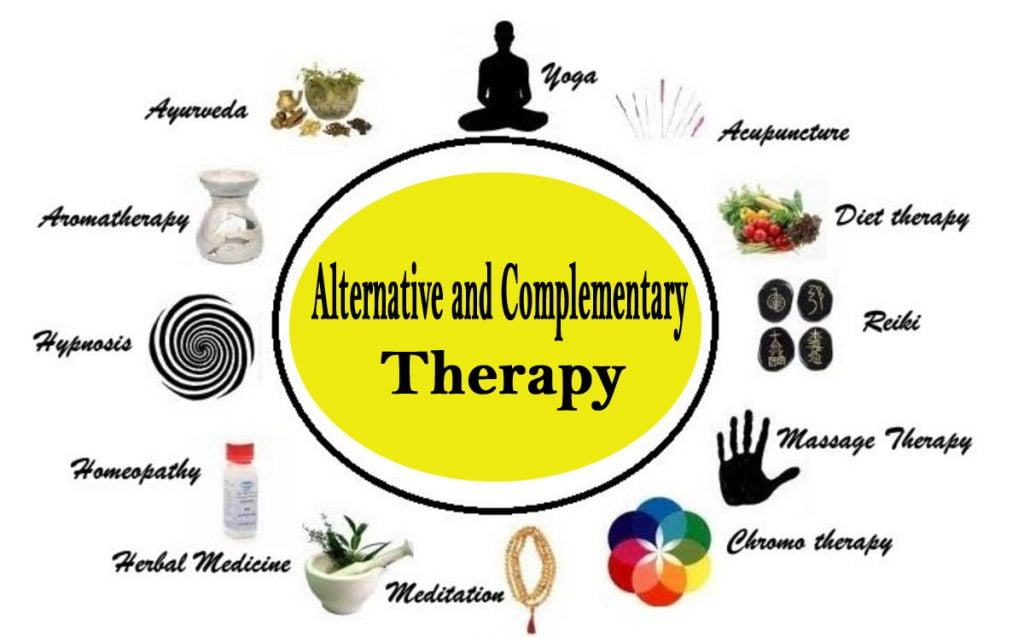Holistic alternative medicine represents a broad spectrum of approaches that emphasize the interconnectedness of the mind, body, and spirit. This paradigm diverges from traditional biomedical practices, which often focus solely on symptom alleviation through pharmacological interventions. Within this comprehensive framework, patients are viewed as active participants in their healing journey, engaging in various therapies that encompass physical, emotional, and spiritual dimensions. This article delves into the foundational concepts, encompassing modalities, and the evolving perceptions surrounding holistic alternative medicine.
In exploring holistic alternative medicine, it is imperative to delineate its fundamental principles. At its core, holistic medicine acknowledges the individuality of each patient, advocating for personalized treatment plans that take into consideration one’s unique lifestyle, psychological state, and emotional needs. Rather than merely addressing isolated symptoms, practitioners aim to understand the underlying causes of health issues, positing that true wellness emanates from a harmonious balance among all aspects of life. Holistic medicine is not a singular discipline; rather, it is an amalgamation of multiple therapies that span various cultures and historical contexts.
Understanding the significance of alternative therapies, one must examine the vast array of modalities encapsulated within holistic medicine. Often, these therapies draw wisdom from ancient practices, incorporating time-honored techniques alongside contemporary innovations.
One of the most widely recognized modalities within holistic alternative medicine is acupuncture. Rooted in Traditional Chinese Medicine, acupuncture involves the insertion of fine needles at specific points on the body to stimulate energy flow or Qi. Proponents argue that this technique can alleviate various ailments, ranging from chronic pain to anxiety, thereby promoting overall well-being. Numerous studies have indicated its efficacy in managing conditions such as migraines and osteoarthritis, underscoring its viability as a complementary approach to conventional treatments.
Complementary to acupuncture is the practice of meditation, which encompasses various techniques aimed at fostering mindfulness and cultivating a serene mental state. Research has continually validated the psychological benefits of meditation, including reduced stress, enhanced emotional regulation, and improved cognitive function. Additionally, mindfulness-based interventions have garnered attention for their role in managing chronic pain and promoting emotional resilience, offering a valuable adjunct to more traditional medical practices.
Another salient component of holistic alternative medicine is herbalism. Herbal remedies have been utilized for millennia across diverse cultures to address a multitude of health concerns. The study of medicinal plants highlights the complex biochemical interactions that can support health, emphasizing the importance of whole-plant formulations. It is noteworthy that while many herbs exhibit therapeutic properties, practitioners must remain vigilant regarding potential interactions with prescribed medications, necessitating a collaborative approach between herbalists and conventional healthcare providers.
Nutrition also plays a pivotal role in holistic health. Nutritional therapy focuses on the idea that diet is a fundamental aspect of wellness. Proponents advocate for a whole-foods approach, emphasizing the consumption of fresh, unprocessed foods rich in nutrients. Furthermore, the psychological aspect of eating, including food choices and emotional connections to food, is explored within this context. Emerging research suggests that specific diets, such as plant-based or anti-inflammatory diets, may contribute to the prevention and management of chronic diseases, reinforcing the idea that what we consume significantly impacts our health outcomes.
Transitioning from therapies to perceptions, it is essential to scrutinize societal attitudes toward holistic alternative medicine. Over recent decades, there has been a noticeable shift in acceptance. Historically viewed with skepticism, these modalities are now increasingly integrated into mainstream healthcare settings. This paradigm shift can be attributed to individuals seeking more comprehensive care, evidencing a growing disenchantment with conventional practices that often prioritize symptom management over holistic well-being.
Healthcare providers increasingly recognize the importance of incorporating alternative therapies into treatment plans, particularly in chronic illness management. The integration of holistic principles into patient-centered care models emphasizes collaboration between medical professionals and alternative practitioners. This multidisciplinary approach fosters a more thorough understanding of patient needs, ultimately enriching the healthcare experience.
Moreover, the internet and social media have revolutionized information dissemination, empowering individuals to research alternative therapies and share personal experiences. Online platforms facilitate the exchange of knowledge and success stories, challenging traditional narratives surrounding health and wellness. Consequently, patients are more equipped to advocate for themselves, demanding a more expansive view of healthcare that encompasses holistic perspectives.
While the acceptance of holistic alternative medicine is gaining momentum, it is not without critiques. Critics highlight concerns regarding the lack of rigorous scientific evidence supporting certain modalities. The disparity between anecdotal success and clinical research can create challenges in establishing credibility and efficacy. Furthermore, there exists a critical discourse on the potential for exploitation within the alternative medicine sphere, illustrating the necessity for ethical standards and regulations to ensure patient safety.
This skepticism underscores the importance of advancing research methodologies within holistic medicine. Bridging the gap between anecdotal evidence and scientific validation requires robust research designs that adequately test the efficacy of various therapies. As interest burgeons, funding and resources allocated to such research will be pivotal in validating holistic practices within the broader medical community.
In conclusion, holistic alternative medicine provides a multifaceted lens through which to understand health and healing. By emphasizing the interconnectedness of physical, emotional, and spiritual well-being, it advocates for patient empowerment and active participation in the healing process. The diverse modalities embedded within this paradigm, such as acupuncture, meditation, herbalism, and nutrition, illuminate the potential for comprehensive health care that honors individual experiences and needs. While the integration of holistic principles into mainstream healthcare is progressing, ongoing discourse surrounding efficacy, safety, and research presents both challenges and opportunities. Ultimately, the evolution of holistic alternative medicine will continue to shape the landscape of health care, fostering an inclusive approach that recognizes the complexity of human health.
